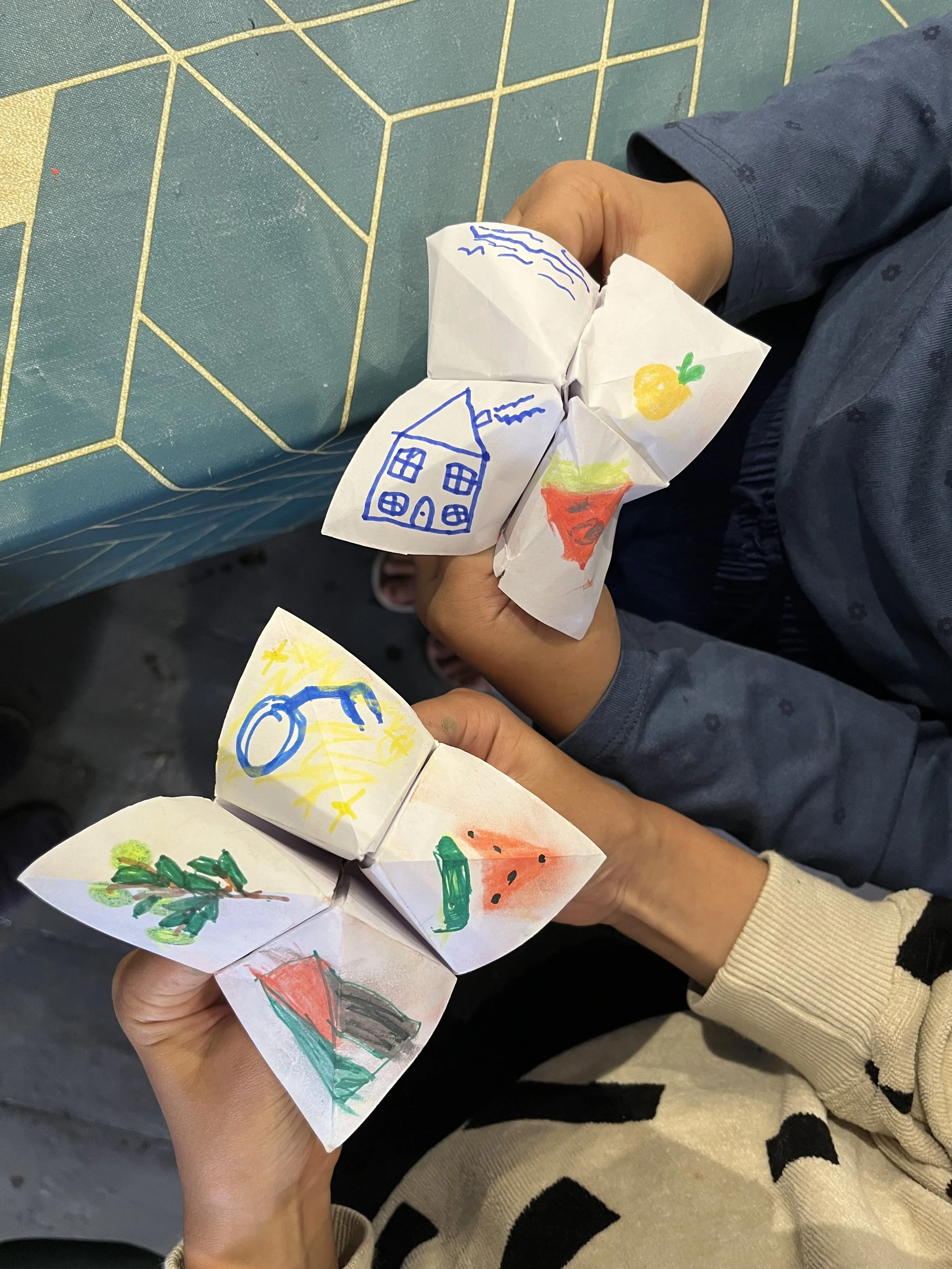Learning and making together for global justice
This resource shares learning prompts for parents/carers, youth workers, and educators to open up age-appropriate conversations about social justice with children and young people. The examples can be easily adapted to the backgrounds and interests of the young people you work with, creating relevant and meaningful discussions.
This resource has come out of workshops we have been running in Birmingham for over a year. We are deeply grateful to all the families who participated, and to the parents and children who planned and delivered these sessions alongside us.
At a time when are witnessing multiple genocides around the world, the systemic starvation of Palestinians in Gaza and the criminalisation of protest at home, having spaces to grieve, learn and resist has become even more urgent. Many families and young people have shared with us how schools are not safe spaces for them: from fear of being referred under The Prevent Duty, families shut-out through the school’s deficit mentality towards them, to students being punished for speaking out against injustices in Palestine. We responded by working with families to deliver sessions in a local community space, where children feel welcomed to bring their full identities.
Whether you are a parent/carer, youth worker or class room teacher, these prompts open up conversations about social justice issues in age-appropriate and relevant ways. The examples here can be easily adapted to the backgrounds and interests of the young people you work with.
Use them to spark curiosity and ask questions that build critical consciousness: What’s missing here? Who has power? Whose voice is not being heard? What are the root causes of this?
How this resource reflects our approach to education:
encourages a “global perspective”, as described by Martin Luther King. Contrary to nationalism and xenophobia, it is an approach which requires us to see the reality of our interconnectedness and oppose that which contributes to the oppression of people all over the world.
inspired by Paulo Freire, it helps children understand the social and political structures that shape their lives. It equips them with tools to think critically and create positive change in themselves and the world around them.
is socially, locally and culturally relevant. Through working together with parents/carers and young people, we selected examples relevant to their identities and the world around us.
challenges the idea that teaching belongs only to “the teacher.” Our communities hold knowledge and expertise, and children themselves are often powerful teachers.
Our thanks to ORT Gallery who supported us with initiating these sessions with families in Birmingham, and to the Museum of Islamic Arts and Heritage for their beautiful space.






